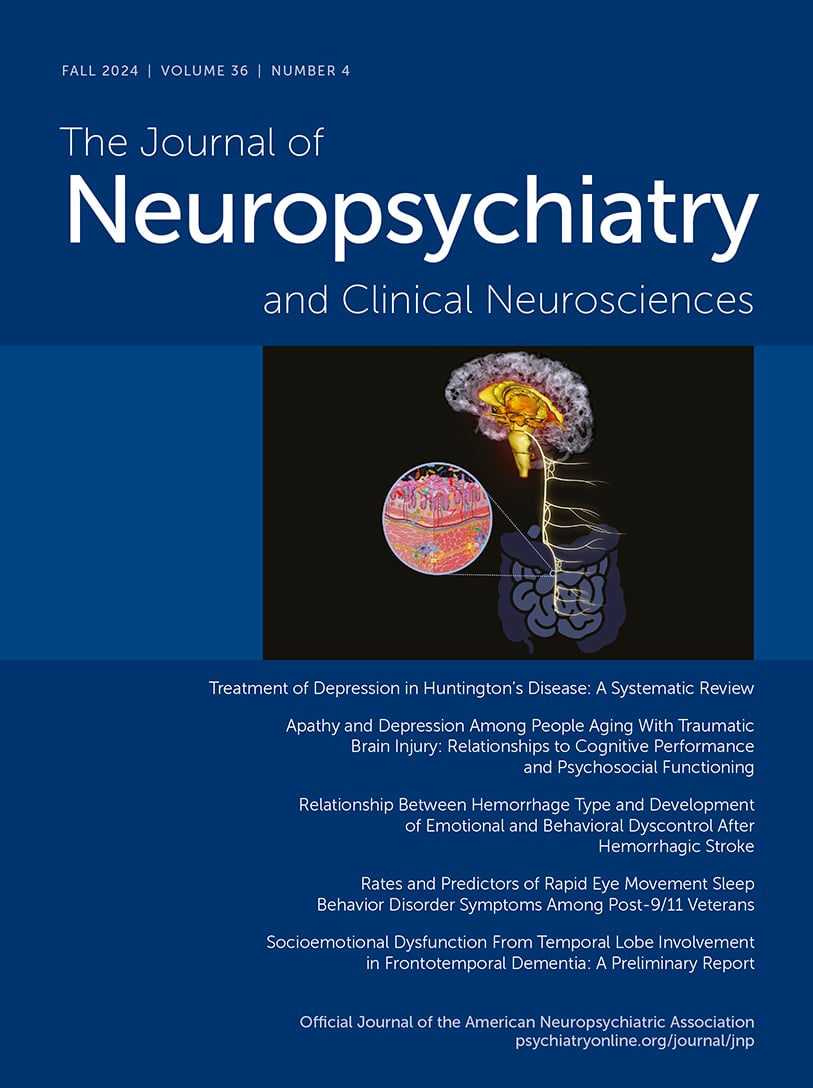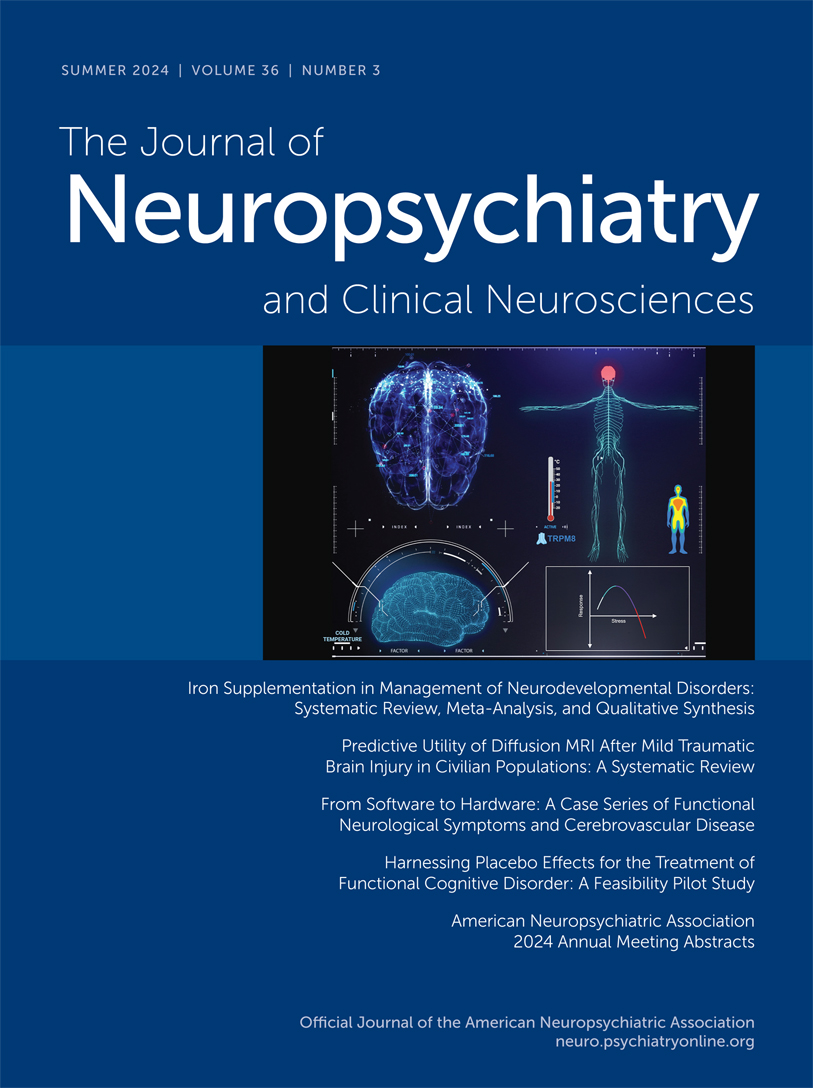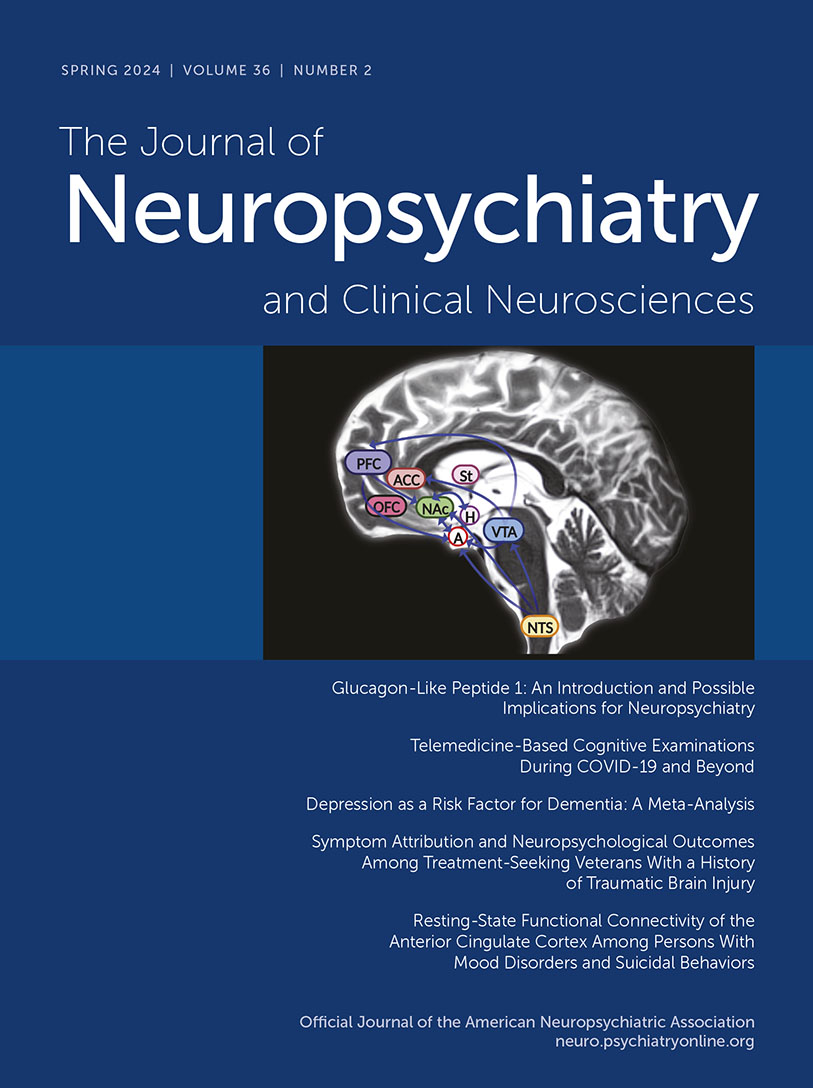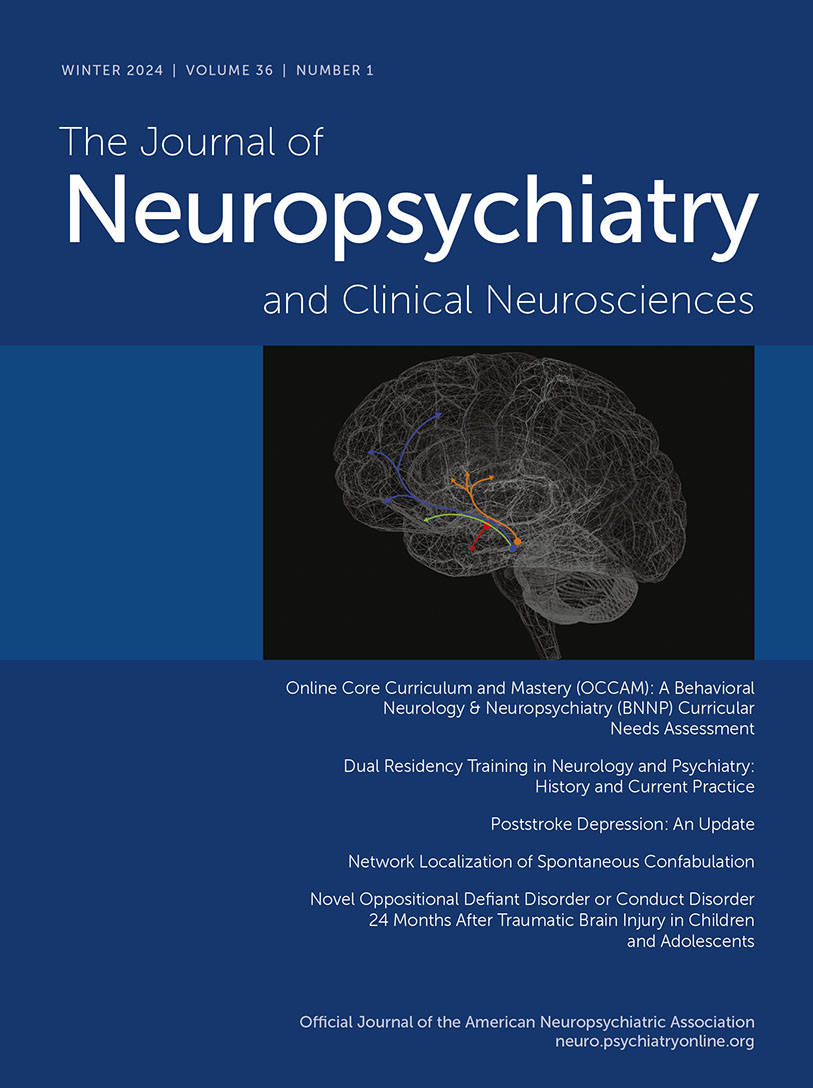The Journal of Neuropsychiatry and Clinical Neurosciences
- Volume 11
- Number 2
- May 1999
Windows to the Brain
Special Article
Publication date: 01 May 1999
Pages176–189Psychiatric disorders frequently compound the disability and complicate the management of neurologic conditions. These disorders result in increased morbidity for the person afflicted, stress for the caregiver, and financial burden. This study reviews the ...
https://doi.org/10.1176/jnp.11.2.176Publication date: 01 May 1999
Pages190–208Electrical activity of each brain region is homeostatically regulated, resulting in predictable frequency composition of the background EEG. Replicated normative databases have established that the EEG power spectrum is independent of ethnic background. ...
https://doi.org/10.1176/jnp.11.2.190Publication date: 01 May 1999
Pages209–221The author presents the hypothesis that reduced delta EEG power observed in cocaine withdrawal is related to changes in dopamine (DA) transmission related to cocaine sensitization. Evidence for this hypothesis includes the topographic anatomical ...
https://doi.org/10.1176/jnp.11.2.209Regular Article
Publication date: 01 May 1999
Pages222–233Individuals infected with HIV are at risk to develop cognitive impairment during the course of their disease. Although many patients develop an HIV-associated dementia, others may develop the less severe minor cognitive motor disorder (MCMD). In this ...
https://doi.org/10.1176/jnp.11.2.222Publication date: 01 May 1999
Pages234–240Patients infected with human immunodeficiency virus, type 1, may present with neuropsychiatric manifestations across all stages of disease. Frequently, these patients may present with more than one neuropsychiatric disorder concomitantly. The case ...
https://doi.org/10.1176/jnp.11.2.234Publication date: 01 May 1999
Pages241–247Sjögren's syndrome is a common medical condition that may produce psychiatric symptoms. Untreated deficits can become permanent, sometimes resulting in death. The hypothesized mechanism involves CNS vasculitis. Psychoactive medications treat psychiatric ...
https://doi.org/10.1176/jnp.11.2.241Publication date: 01 May 1999
Pages248–252In this pilot study, 6 patients who complained of persisting coldness after brain injury were treated with intranasal vasopressin (DDAVP) twice daily for 1 month. Response was assessed after 1 month of treatment, DDAVP was discontinued, and response was ...
https://doi.org/10.1176/jnp.11.2.248Publication date: 01 May 1999
Pages253–258Laughter is a particularly human behavior. Neuropsychiatrists are faced with disorders of laughter, yet the nature of this behavior and its disturbances remains obscure. The authors report an unusual patient with involuntary and unremitting laughter for ...
https://doi.org/10.1176/jnp.11.2.253Publication date: 01 May 1999
Pages259–267Similar neurosurgical procedures exist for Parkinson's disease (PD) and obsessive-compulsive disorder (OCD). Because PD is seen as a brain disease and OCD as a disease of the mind, neurologists and psychiatrists may be more aware of and more optimistic ...
https://doi.org/10.1176/jnp.11.2.259Clinical and Research Reports
Publication date: 01 May 1999
Pages268–270The investigators evaluated donepezil, an acetylcholinesterase inhibitor, for vascular dementia. Eight outpatients with subcortical lesions and mild to moderate cognitive impairment received donepezil for 6 months. During this period, cognitive measures ...
https://doi.org/10.1176/jnp.11.2.268Publication date: 01 May 1999
Pages271–273Depression is common in multiple sclerosis (MS) patients, but tricyclic compounds are not well tolerated and newer antidepressants have not been studied. Effects of 150–400 mg/day of moclobemide, a reversible monoamine oxidase A inhibitor, were studied in ...
https://doi.org/10.1176/jnp.11.2.271Neuropsychiatric Practice and Opinion
Classic Articles
Book Reviews
Letter
Calendar
Past Issues
View Issues Archive
Vol. 36 | No. 4

Vol. 36 | No. 3

Vol. 36 | No. 2
